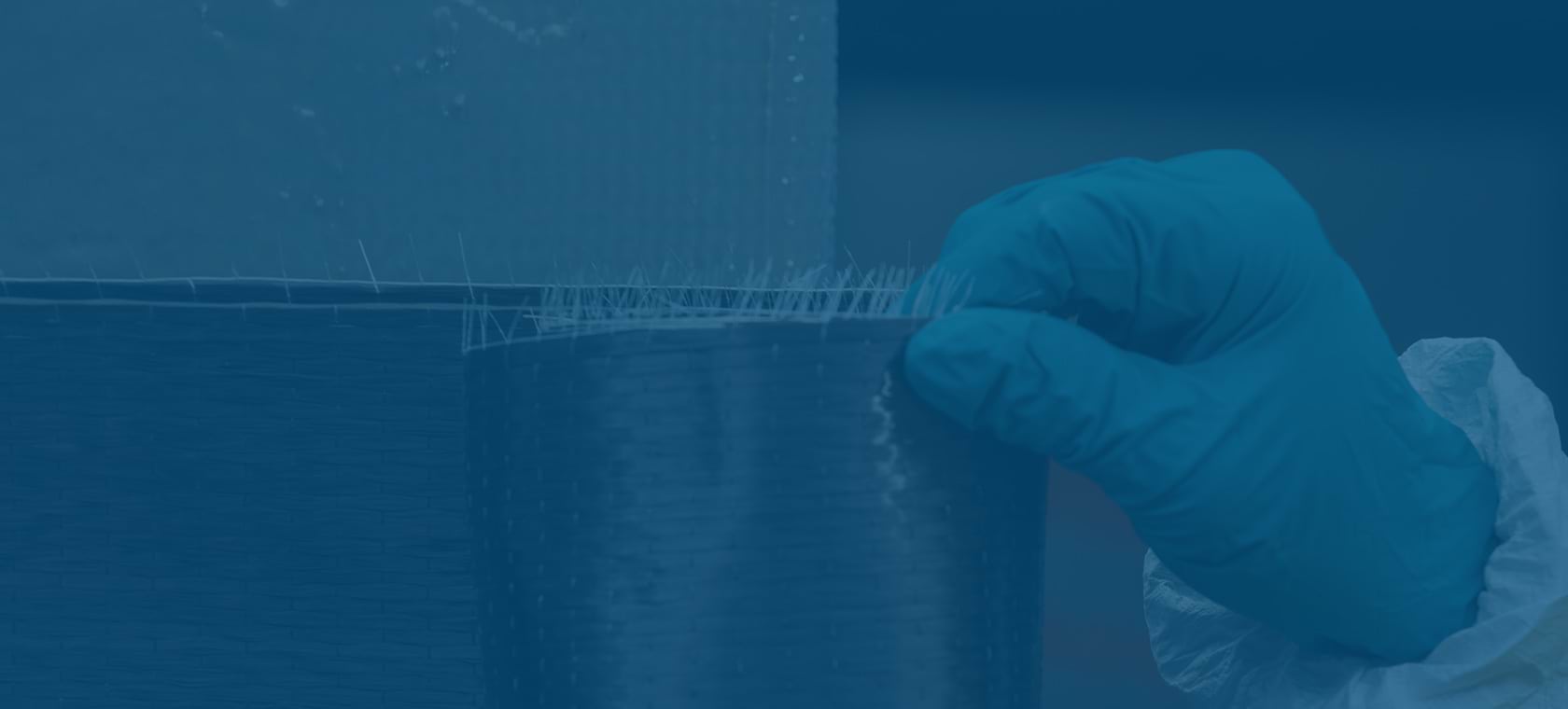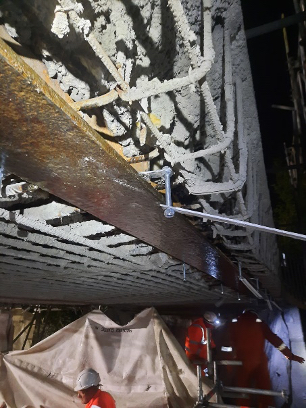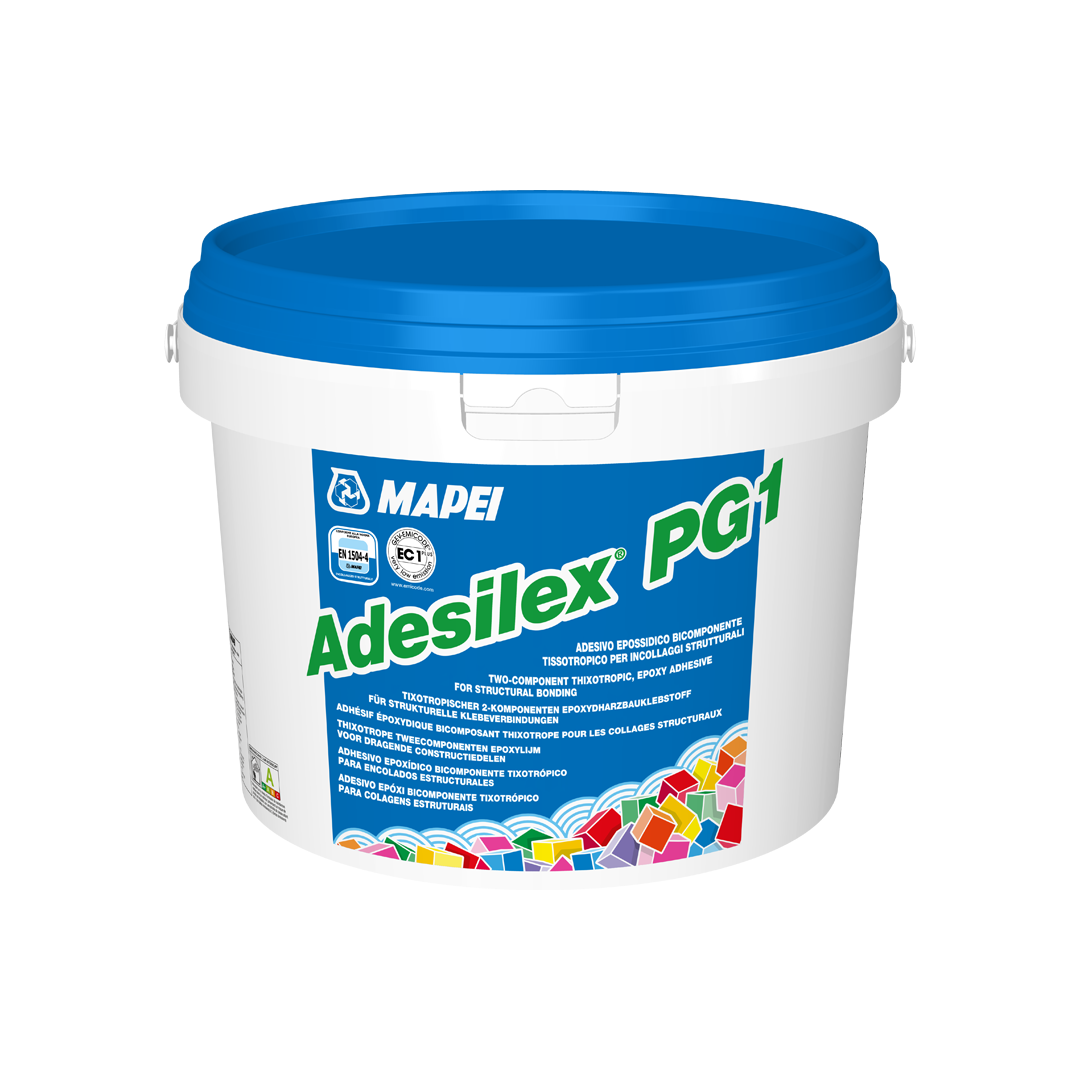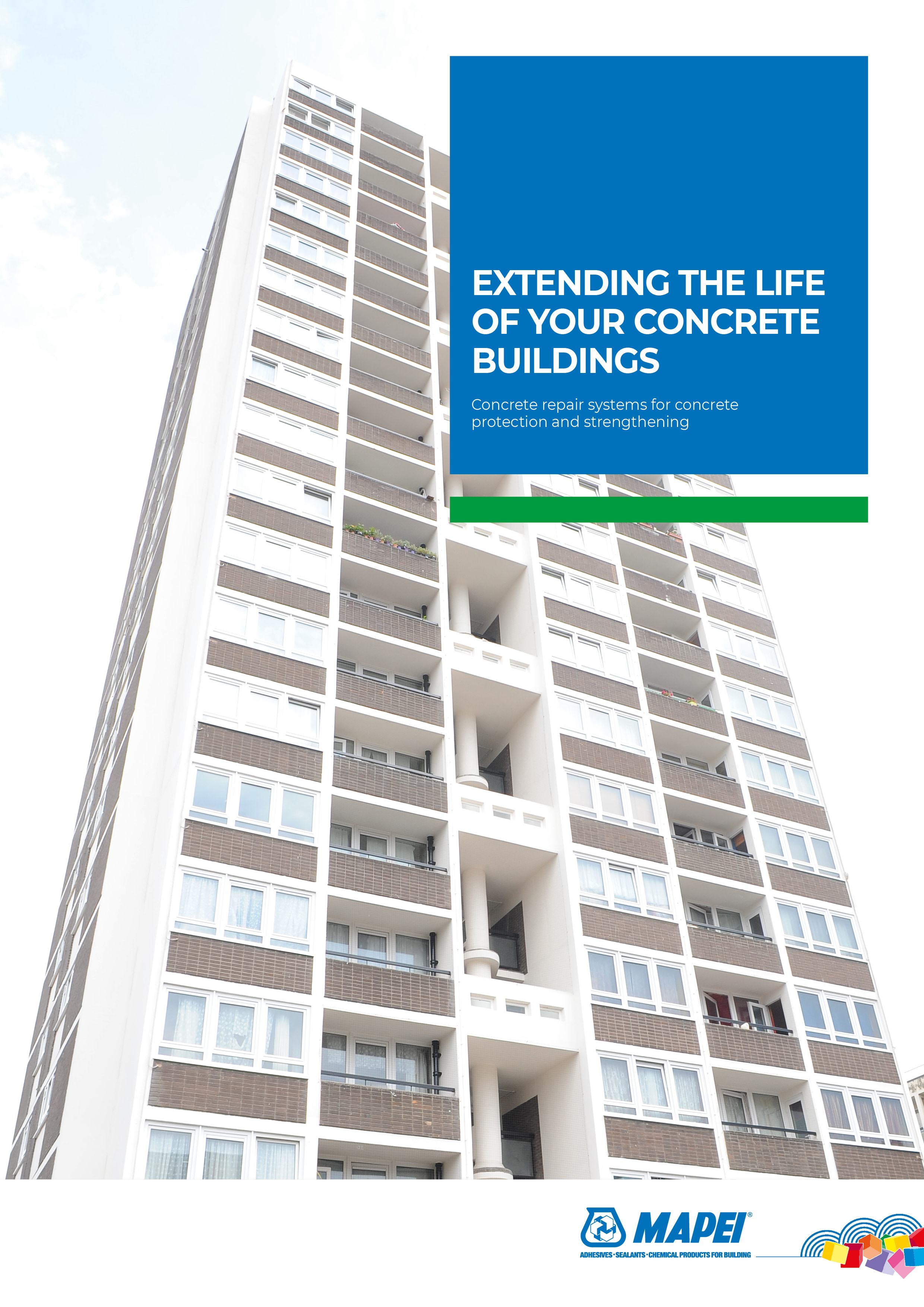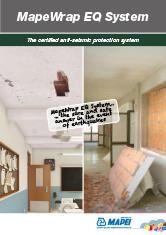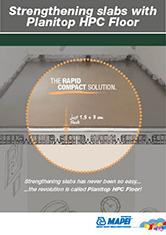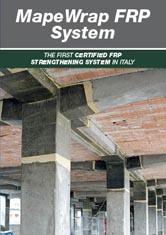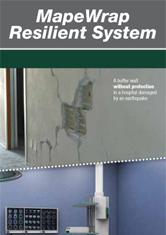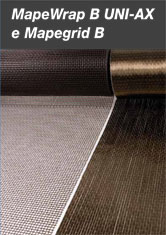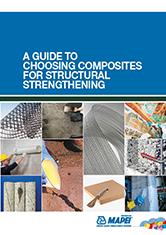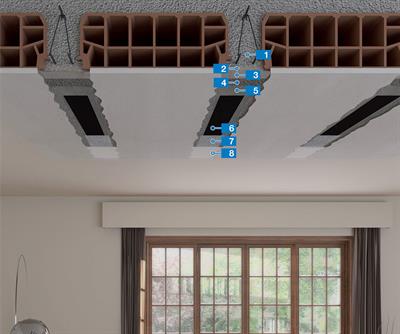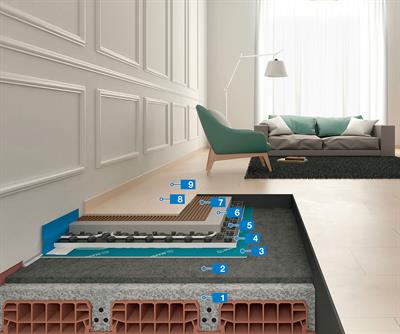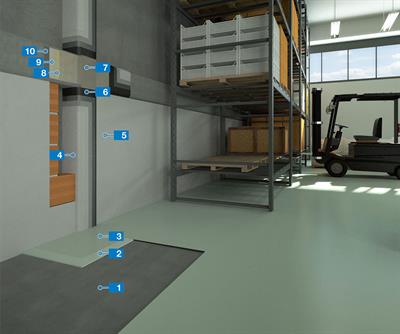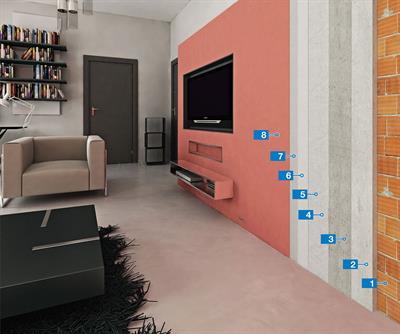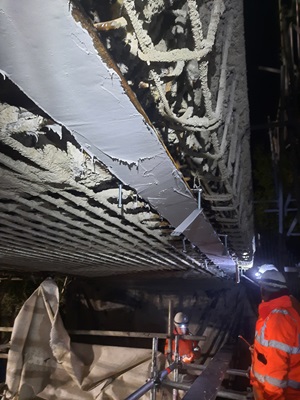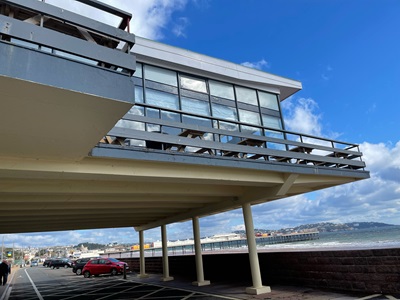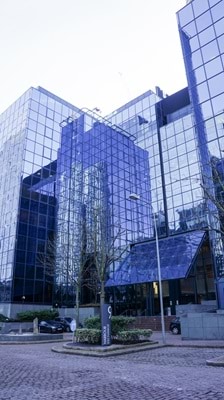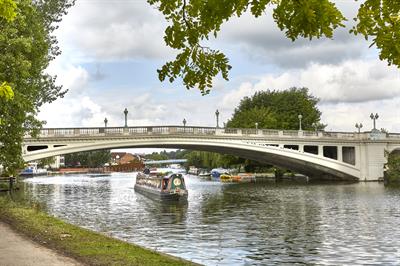Strengthening works to two cast iron beams on a rail bridge near Ballymoney, County Antrim has been undertaken with the complete Mapei Carboplate Ultra High Modulus Plate system on behalf of client, Translink.
Coolderry Bridge is a single square span (8.49m clear span) accommodation bridge spanning a railway line. The bridge superstructure consists of 2 No. cast iron main edge beams (610mm x 191mm) and 6 No. transverse beams (254mm x 127mm) at 1.295m centres which span between edge beams and support a reinforced concrete deck slab. The beams were fully encased within the reinforced concrete deck.
A bridge examination noted large areas of concrete spalling, exposing the bottom flanges of the main edge and transverse beams. The bottom flanges of the beams were corroded with approximately 3mm of section loss. The structural assessment of the beams showed that due to this section loss, increase bending capacity was required, and the beams needed to be strengthened.
To increase the bending capacity, the remedial strategy involved the removal of all defective concrete, blast cleaning of structural steelwork, replacing reinforcement in the soffit of the deck slab, and reinstating concrete using a fibre reinforced sprayed concrete repair mortar.
The design engineer approached Mapei for the feasibility study of using a CFRP strengthening system to reinforce the affected steel edge girders. The study was carried out in accordance with the procedure described in CIRIA 595. Once all technical and practical aspects of the strengthening works were considered, Mapei then provided a specification and method statement for the plate installation.
The solution involved two 8.5m custom designed Ultra High Modulus Carbon Fibre plates from Mapei which were 170mm wide and 14mm thick. The full Mapei Carboplate UHM System comprises of structural adhesive, Adesilex PG1 and the factory assembled pultruded ultra-high strength carbon fibre laminates. The laminates are produced under strict factory conditions via the pultrusion method. This method ensures that the individual carbon tows are perfectly aligned, then stressed to give the very high strength required to stiffen and strengthen the cast iron beams.
Each laminate is made in 2mm or 4mm thickness, and various widths to suit the size and geometry of the cast iron beam that requires stiffening. The individual laminates then have the “peel-ply” removed so that a clean, mechanically prepared surface is ready to accept a layer of carbon ‘pre-preg’ that bonds the laminates together to form the designed beam. Carboplate UHM has a further advantage of having a glass veil adhered to the bonding and exposed surfaces, to protect against any stray currents that may be caused from the anticipated use of the structure.
The works were initially programmed over a five-night rail possession but with design and the work of Specialist Contractor Concrete Repairs Limited (CRL), the work was completed across one weekend, saving Translink time and money.
During the first night of possession, the underside of the beams were mechanically cleaned, and pull off tests were set up for the qualification of the substrate. On the second night of possession, Adesilex PG1 was applied to the steel flange, followed by Mapei Carboplate C UHM pultruded carbon fibre laminate which was offered to the underside of the steel flange.
A team of five then lifted the plates into place, starting at one end and moving along the length of the plate. All excess adhesive was pushed out of place, to ensure all trapped air was removed, while leaving a 2-3mm bed of adhesive.
The Carboplate C UHM plates were temporarily held in position with magnetic brackets and aluminium straps, designed by CRL, to allow the resin to set. The temporary support was removed after approximately six hours.















